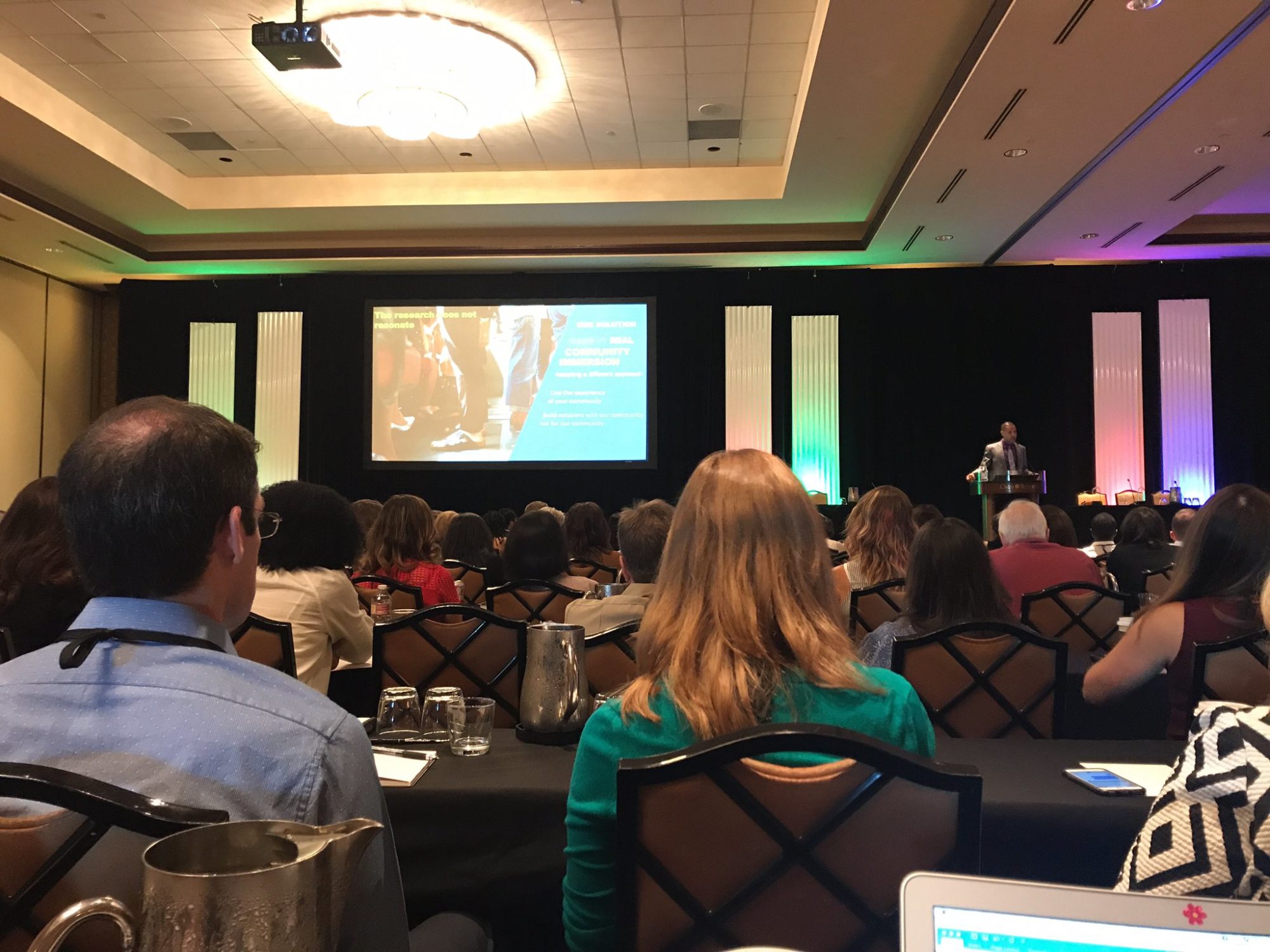Changemaker Award recipient Leila Darwish traveled to Colorado for the 42nd Annual Natural Hazards Centre Workshop in July 2017. She joined over 500 disaster researchers and practitioners from around the world focused on how to move knowledge to action, reduce various hazards, and promote disaster resilience. Leila is completing her Masters of Disaster Resilience Leadership at Tulane’s Disaster Resilience Leadership Academy.
Thanks to a generous award from the Taylor Center, I had the opportunity to travel to Colorado in July for the 42nd Annual Natural Hazards Centre Workshop. It was a great four days of plenaries, panels, speakers and networking with experts from across North America and beyond, some coming from as far as New Zealand, Japan, and Chile.
In the mornings, participants filled the room for the plenary session, breaking out into different panels after lunch. One plenary that was really interesting was called, “Taking Action in Communities Vulnerable to Disaster.” The panel featured interesting speakers, one of them being Laura RidesHorse, the Emergency Manager for the Crow Nation in Montana. Laura shared the many challenges her people (as well as other Indigenous communities) face concerning a lack of resources and external support for protecting their lands and community from a variety of hazards. She also shared stories about the strength and resilience of her people, and how their culture is deeply rooted in lands they cannot so easily retreat from. Another panel speaker was Steve Simonic, a playwright who had adapted a novel based on the Chicago heat wave into a popular play. He spoke on the power of theatre and shared how disasters are “a lifting of the veil on the social fault lines that already exist in our communities. Though disasters may be inclusive, preparedness, response and recovery are not unless we plan for them to be”.
Another plenary I found interesting was “Communicating Knowledge: Sparking Action.” It featured leading journalists from the Los Angeles Times, the Seattle Times, and the Times-Picayune. The three journalists were all active on reporting about acute and chronic hazards and disasters, whether they were doing investigative journalism on the earthquake risks in LA and Seattle or hurricanes and flooding in New Orleans. They discussed the reporting they had done on hazard mitigation, disasters, and climate change, as well as the public and political response to the stories they produced. They also gave the conference participants tips on how to better work with the media to communicate their disaster research to both the general public and decision-makers in order to raise awareness and produce real change when it comes to reducing hazards and increasing resilience.

Besides the plenaries, there were many intriguing panels, covering topics such as hazard mitigation, green infrastructure and ecological approaches to hazard mitigation, climate change adaptation for big cities, gender and disasters, disaster-related migration, community resilience, public alerts and warnings for dam and levee emergencies, large scale disaster response and recovery, schools and education during disasters, building social capital, inclusion and empowerment in disaster risk reduction, and so much more. Speakers shared lessons learned from recent wildfires, floods, earthquakes, extreme heat, tornados, and hurricanes, sharing research from Hurricane Katrina, the Fukushima Daiichi Nuclear Disaster, the Christchurch New Zealand Earthquake, and many other significant disasters.
Louisiana figured prominently in the conference, with the Director of the Foundation for Louisiana, Flozell Daniels, speaking on a plenary panel about Foundation for Louisiana’s work in equitable disaster recovery and community resilience. There was also a panel session on Louisiana SAFE, a program that was funded through the U.S. Housing and Urban Development’s National Disaster Resilience competition. It seeks to protect coastal wetlands in and around southeast Louisiana, retrofit communities to withstand increased flood risk, and reshape high-ground areas to maximize their use and safety.
I was lucky to be part of the volunteer team at the conference, working with a great crew of graduate student volunteers and the inspiring and solid staff at the Natural Hazards Centre at the University of Colorado Boulder. Through connecting with the staff at the Natural Hazards Centre and also the other grad students, I got the chance to see what other disaster research centers were doing across the country and consider ways to expand my education. More than a few times throughout the conference, I found myself sitting near a disaster researcher whose foundational papers I had read numerous times in my Tulane classes.

All in all, it was great conference and a wonderful opportunity to network and meet leaders in the field of hazard mitigation and disaster resilience. The first morning, the conference hosts had all 500 participants introduce themselves in the auditorium. They also asked those present to make mention of any jobs they were looking to fill in their introductions. During the 30 minute break following the morning introductions and plenary, all those disaster researchers and practitioners who had jobs to offer circled up to present more information on the jobs to interested students and participants like myself. It was very helpful not only see if there were any jobs for me and widen my scope of who was hiring and what was possible, but also to think about fellow students in my program and send some of the opportunities their way as well.
For those interested in more information about the Natural Hazards Centre and the conference, click here. The Natural Hazards Centre also has a Quick Response Research Grant Program that provides funds for researchers to quickly travel to disaster-affected areas to capture perishable data. The program promotes innovation in disaster research by favoring students, new researchers, and novel areas of study. For more information on the Quick Response Research Grant Program, click here.
Thank you Taylor Center for your generous support in helping me attend this conference!
